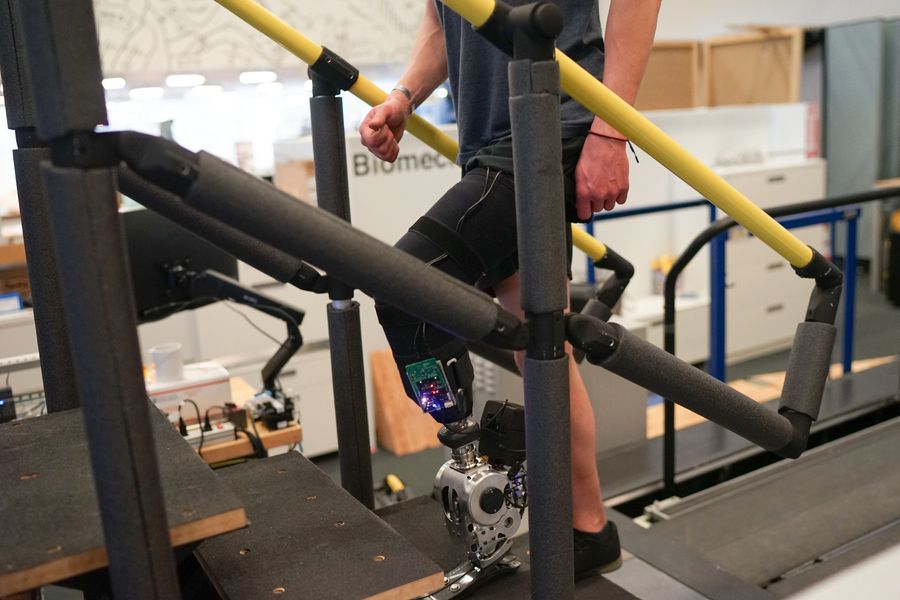AI Breakthrough Enables Natural Control of Bionic Limbs

AI-Powered Prosthetics Achieve Unprecedented Intuitive Movement
Recent advancements in neural interface systems and adaptive AI algorithms are revolutionizing prosthetic limb control, enabling amputees to perform complex movements through natural intention. Developers at Phantom Neuro, the University of Alberta, and the University of Utah have unveiled breakthroughs that combine non-invasive sensors with machine learning to decode biological signals with 94% accuracy TechFundingNews.
Why This Matters
Over 2 million people in the US live with limb loss, yet fewer than 30% use advanced prosthetics due to control limitations and high costs. The new generation of AI-enhanced devices directly addresses these challenges through:
- Real-time responsiveness: The Bento Arm processes muscle signals within 50ms using open-source machine learning models Amputee Store
- Natural integration: Phantom Neuro's subcutaneous sensors achieve 94% gesture recognition without brain implants
- Cost reduction: FAU's MyoGestic system uses $200 electrode cuffs versus $50k implant systems FAU
Technical Breakthroughs
-
Neural Signal Decoding The Utah Bionic Leg combines force sensors and AI to predict walking surfaces 300ms before foot contact, reducing stumble rates by 68% Is Brave.
-
Adaptive Power Systems BLINC Lab's Bento Arm uses reinforcement learning to optimize grip strength dynamically, enabling users to handle fragile objects like eggs without manual adjustments.
-
Sensory Feedback Loops BIOS's neural interface provides tactile feedback through residual nerve stimulation, allowing users to 'feel' prosthetic hand movements University of Utah.
Future Outlook
Dr. Jacob George of the Utah NeuroRobotics Lab states: 'Our FDA-designated device shows 89% user retention at 12 months versus 22% for conventional prosthetics.' Clinical trials for at-home use begin Q3 2025, while Phantom Neuro plans commercial rollout of its outpatient-implant system by 2026.
Social Pulse: How X and Reddit View AI Prosthetic Advances
Dominant Opinions
- Optimistic Adoption (58%)
- @NeuroTechDaily: 'The Bento Arm's open-source approach could democratize access like Linux did for OS markets'
- r/Futurology post: 'Finally seeing real-world Iron Man tech - my uncle could type again within minutes of testing'
- Affordability Concerns (27%)
- @DisabilityRights: 'Who'll pay $30k+ for these systems when 75% of amputees are underinsured?'
- r/Prosthetics thread: 'My $800 Medicare prosthetic vs the $50k Bento Arm - we need policy changes NOW'
- Ethical Debates (15%)
- @AI_Ethicist: 'Brain-data ownership isn't addressed - could insurers access neural performance metrics?'
- r/Technology discussion: 'Military applications concern me more than medical ones'
Overall Sentiment
While most praise restored mobility capabilities, heated discussions continue about equitable access and data privacy in next-gen neuroprosthetics.